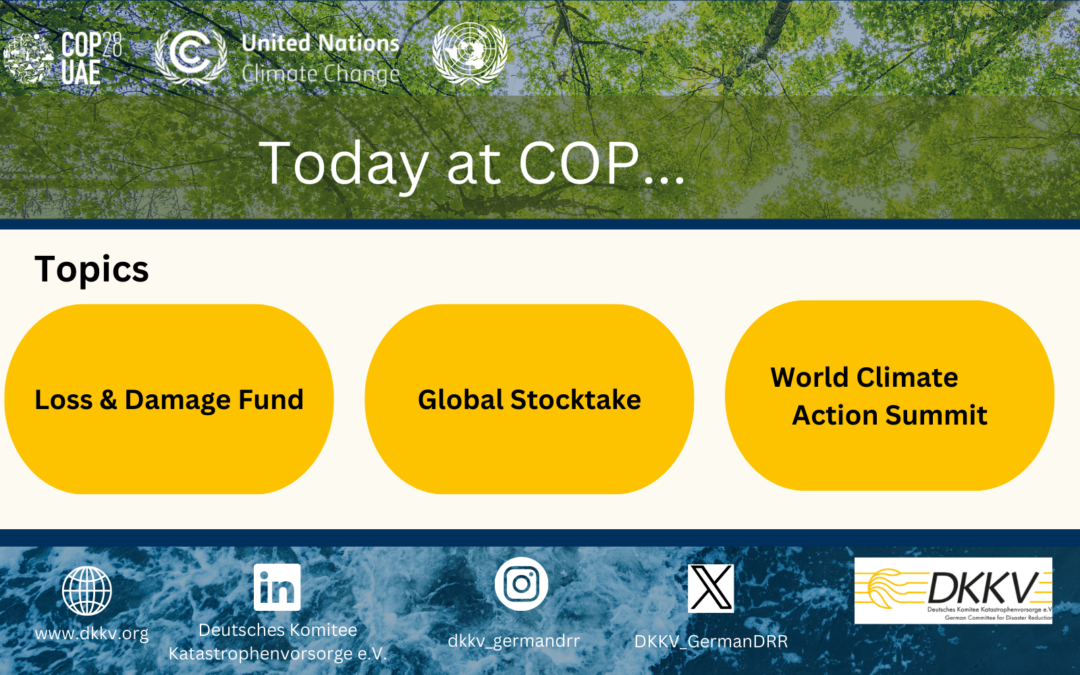Loss and Damage
Building on the results of COP27 with the decision to set up a fund for climate damage, it has now already been decided on the first day of the COP28 conference how this should function. The UN Organization for Trade and Development (UNCTAD) calculates the “loss and damage” (LDF) as a result of the climate crisis at around USD 435 billion for 2020 and USD 580 billion for 2030. As things started, not even 1% of the initial sum of USD 150 billion recommended by UNCTAD is in the “loss and damage fund”. As the payments are voluntary, it is not yet clear how much money will be collected.
Current status of the individual countries’ contributions:
– United Arab Emirates: §100 million
– Germany: §100 million
– United Kingdom: §75 million
– Japan: §10 million
– United States: §17.5 million
– EU: ~§163 million (€150 million)
– Canada: $16 million
– Italy: §141.6 million
Credit: Friedrich Bohn
Global Stocktake
The Stocktake is the process of assessing the collective progress of countries towards implementing the goals of the Paris Agreement and is focusing on adaptation in today´s session. This assessment can help policymakers and stakeholders strengthen their climate policies in their next round of nationally determined contributions (NDCs), paving the way for accelerated action. The Stocktake takes place every five years, with the first-ever Stocktake set to conclude at COP28. Delegates at the high-level event on adaptation discussed how the Stocktake´s outcome can bolster efforts for countries and communities to better adapt to the impact of climate change. More about the Global Stocktake can be found on the UNFCC Website and in the GTS synthesis report.
World Climate Action Summit
The World Climate Action Summit will be held on 1 and 2 December as an integrated part of the COP28 agenda, with the aim to mobilise national and subnational actors for climate action at the city and local levels. The main topics being discussed are on health and climate as well as climate and sustainable agriculture. Thus sustainable food systems as critical components in both dealing with climate change and building food systems fit for the future is recognized and supported with $2.5 billion to support the food-climate agenda.


